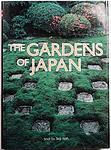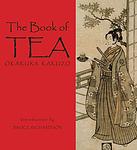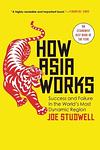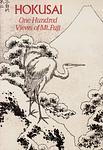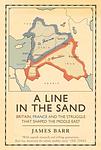The Greatest British, Japanese "Asian History" Books of All Time
Click to learn how this list is calculated.
This list represents a comprehensive and trusted collection of the greatest books. Developed through a specialized algorithm, it brings together 305 'best of' book lists to form a definitive guide to the world's most acclaimed books. For those interested in how these books are chosen, additional details can be found on the rankings page.
Genres
Asian History is a category of books that focuses on the historical events, cultures, and societies of Asia. This category includes books that cover a wide range of topics, including the ancient civilizations of China, Japan, and India, the rise and fall of empires, the impact of colonialism, and the modernization of Asian countries. It also includes books that explore the social, political, and economic changes that have shaped the region over time. Overall, Asian History provides readers with a comprehensive understanding of the rich and diverse history of Asia.
Countries
Date Range
Reading Statistics
Click the button below to see how many of these books you've read!
Download
If you're interested in downloading this list as a CSV file for use in a spreadsheet application, you can easily do so by clicking the button below. Please note that to ensure a manageable file size and faster download, the CSV will include details for only the first 500 books.
Download-
1. A Study of History by Arnold J. Toynbee
"A Study of History" is an extensive 12-volume universal history, exploring the development and decay of world civilizations throughout the ages. The author proposes that civilizations rise and fall based on their responses to challenges, both physical and social. The book also puts forth the idea that religions play a crucial role in the rise of civilizations and that the failure of a civilization's creative power can lead to its decline. The work is renowned for its scholarly depth and its controversial theories about the cyclical nature of history.
The 982nd Greatest Book of All Time -
2. The Pillow Book by Sei Shōnagon
"The Pillow Book" is a collection of personal observations, anecdotes, and reflections by a woman in the Heian court of Japan. It presents a detailed and vivid picture of court life, including the lavish ceremonies, the rivalries and intrigues, the idle pastimes of the courtiers, and the romantic escapades of the empress and her consorts. The book also contains lists, poetry, and personal musings, providing a unique perspective on the culture and customs of the Heian period.
The 1171st Greatest Book of All Time -
3. The Rise And Fall Of The Great Powers by Paul Kennedy
The book in question offers a comprehensive analysis of the economic and military factors that have shaped the relative power of nations from the 16th century to the late 20th century. It argues that the rise and fall of great powers are closely linked to their ability to manage economic resources and maintain military strength. The author examines the patterns of history to show how the overextension of an empire's resources often leads to decline, and suggests that managing the balance between wealth and power is crucial for the longevity of a great power. The book also provides insights into the potential future of global power dynamics by considering the implications of these historical patterns for contemporary superpowers.
The 2827th Greatest Book of All Time -
4. In Xanadu by William Dalrymple
"In Xanadu" is a travelogue that follows the journey of a young historian and writer as he retraces Marco Polo's route from Jerusalem to the fabled city of Xanadu in Mongolia. Along the way, the author weaves together a rich tapestry of history and adventure, engaging with diverse cultures and landscapes. His travels take him through the Middle East, South Asia, and into the heart of China, offering insights into the complex interplay between past and present, and the enduring allure of one of history's most legendary journeys. The narrative is as much a personal coming-of-age story as it is a homage to the spirit of exploration and discovery.
The 3225th Greatest Book of All Time -
5. The Confessions Of Lady Nijo by Lady Nijo
This book is a candid autobiographical account of a Japanese woman who lived during the Kamakura period. Initially serving as a concubine to the Emperor, she later becomes a wandering Buddhist nun. Her narrative provides a unique insight into the court life of the time, detailing her intimate experiences, political intrigues, and the societal expectations of women. Her journey from the luxuries of the imperial court to the ascetic life of a nun offers a poignant exploration of love, spirituality, and personal transformation, reflecting the complex interplay between the secular and religious life in medieval Japan.
The 3462nd Greatest Book of All Time -
6. Hiroshima Notes by Kenzaburō Ōe
"Hiroshima Notes" is a poignant collection of essays that delve into the aftermath of the atomic bombing of Hiroshima, exploring the enduring impact on the survivors and the city itself. The author, through a series of visits to Hiroshima in the 1960s, reflects on the moral and ethical implications of nuclear warfare, the resilience of the human spirit, and the responsibilities of humanity. Through interviews with survivors and thoughtful contemplation, the book provides a deep and multifaceted perspective on suffering, healing, and the quest for peace in the shadow of one of history's most devastating events.
The 5517th Greatest Book of All Time -
7. An Area Of Darkness by V. S. Naipaul
The book is a travelogue that delves into the author's journey through India, a country that is both his ancestral homeland and a place of discovery for him. Through a series of vivid observations and encounters, the narrative explores the complexities, contradictions, and profound cultural richness of India. The author grapples with the legacies of colonialism, the challenges of modernity, and his own personal search for identity. The text is characterized by its introspective and often critical perspective, offering a portrait of a nation at a crossroads and a writer's quest to understand his own heritage.
The 5517th Greatest Book of All Time -
8. Slowly Down The Ganges by Eric Newby
This travelogue recounts the author's adventurous journey down the Ganges, one of the great rivers of the Indian subcontinent. With humor and keen observation, the narrative captures the diverse landscapes and vibrant cultures encountered along the riverbanks. Through a series of mishaps, challenges, and encounters with local inhabitants, the author paints a vivid picture of life in India, reflecting on its history, religion, and the profound significance of the river to the people who live along its course. The book is as much a personal quest as it is an exploration of a place and its people, offering insights into the complexities of a rapidly changing country while navigating the waters of one of its most sacred rivers.
The 5517th Greatest Book of All Time -
9. The Gardens Of Japan by Teiji Itoh
"The Gardens of Japan" explores the art and aesthetics of Japanese gardens, tracing their development from ancient times to the modern era. The book delves into various garden styles, from the serene rock gardens of Zen Buddhism to the ornate tea gardens and expansive stroll gardens. Richly illustrated and detailed, it examines the philosophical and cultural underpinnings that have shaped garden design in Japan, highlighting the intricate interplay of nature, spirituality, and art. The author provides insights into the symbolic elements of these gardens, their use of space and natural materials, and the meticulous care that goes into their creation and maintenance, offering readers a deep appreciation of this enduring art form.
The 6293rd Greatest Book of All Time -
10. Chasing The Monsoon by Alexander Frater
In this travelogue, the author embarks on a captivating journey following the Indian monsoon as it sweeps across the subcontinent. Starting from the southern tip of Kerala and moving up towards the northeastern state of Assam, he weaves together a tapestry of diverse experiences, meeting a variety of people and observing the profound impact that this dramatic weather phenomenon has on the land and its inhabitants. Along the way, the narrative is enriched with historical context, personal anecdotes, and vivid descriptions of the landscape, ultimately painting a portrait of the monsoon that is as much about the human spirit as it is about the forces of nature.
The 6510th Greatest Book of All Time -
11. India Under British Rule From The Foundation Of The East India Company by James Talboys Wheeler
This book provides a comprehensive historical account of British India, beginning with the establishment of the East India Company, which laid the groundwork for British dominance in the region. It explores the complex interactions between the colonizers and the native populations, detailing the economic, political, and social changes that unfolded as the British solidified their control over the Indian subcontinent. The narrative delves into the administrative structures and policies implemented by the British, their impact on the local societies, and the gradual emergence of resistance movements that set the stage for India's struggle for independence.
The 6745th Greatest Book of All Time -
12. The Ordeal Of Elizabeth Marsh: A Woman In World History. by Linda Colley
"The Ordeal of Elizabeth Marsh" by Linda Colley tells the story of a remarkable woman who lived in the 18th century and traveled the world, experiencing various cultures and societies. Elizabeth Marsh was born into a wealthy family in England but faced many challenges throughout her life, including being kidnapped in Morocco and facing financial ruin. Colley uses Marsh's story to explore themes of gender, power, and imperialism, and to shed light on the experiences of women in world history.
The 7145th Greatest Book of All Time -
13. A History of the World in 100 Objects by Neil MacGregor
This book offers a unique perspective on world history, telling the story of humanity through the examination of 100 man-made objects. The author, a museum director, uses items from the British Museum, ranging from a 2 million-year-old Olduvai stone cutting tool to a contemporary credit card, to explore various themes such as trade, religion, art, science, and politics. The book provides a fascinating lens through which to view the evolution of human civilization.
The 8335th Greatest Book of All Time -
14. The Book Of Tea by Kakuzō Okakura
"The Book of Tea" explores the intricate and nuanced philosophy behind the Japanese tea ceremony, presenting it as a blend of Zen Buddhism, Taoism, and the ethics of the Samurai. The author delves into the aesthetic and cultural significance of tea in Japan, discussing how it influences various aspects of life and art, from architecture to flower arranging. The book also reflects on the broader implications of tea as a spiritual and meditative practice, emphasizing simplicity, naturalness, and a profound appreciation for the beauty of the everyday. Through this lens, the tea ceremony becomes a metaphor for a harmonious and mindful approach to life.
The 8726th Greatest Book of All Time -
15. How Asia Works by Joe Studwell
This book provides a comprehensive analysis of the economic development in nine Asian countries, focusing on the policies and strategies that have driven their growth. It contrasts successful economies like Japan, South Korea, and China with less successful ones in Southeast Asia, examining land reforms, manufacturing policies, and financial control. The author argues that the successful countries followed a similar developmental path by implementing land reform to support smallholder farming, focusing on manufacturing with strict productivity goals, and controlling the financial sector to support these policies. The book challenges conventional economic theories and offers insights into the mechanisms behind Asia's economic transformations.
The 9498th Greatest Book of All Time -
16. Hokusai by Henry D. Smith
This book provides a comprehensive exploration of the life and works of Katsushika Hokusai, a renowned Japanese artist and printmaker of the Edo period. The text delves into Hokusai's artistic development, examining how his work evolved over the decades, his influence on both Eastern and Western art, and his lasting impact on the genre of ukiyo-e, or woodblock prints. The biography also contextualizes Hokusai's iconic pieces, such as "The Great Wave off Kanagawa," within the broader scope of his oeuvre and the historical and cultural factors that shaped his unique artistic vision.
The 9517th Greatest Book of All Time -
17. A Line In The Sand by James Barr
This book delves into the complex history of the modern Middle East, focusing on the post-World War I era when Britain and France drew arbitrary borders, creating new nations and sowing the seeds for future conflicts. It examines the clandestine struggle between these colonial powers as they vied for dominance in the region, often at the expense of the local populations. The narrative reveals how the duplicitous actions and broken promises of Western powers during this period set the stage for enduring turmoil and established a legacy of distrust and instability that continues to affect the geopolitics of the Middle East to this day.
The 9684th Greatest Book of All Time -
18. Empireland by Sathnam Sanghera
The book is a thought-provoking exploration of the British Empire's enduring impact on modern Britain. It delves into the ways in which imperialism has shaped the nation's psyche, politics, economy, and identity, often in ways that are overlooked or forgotten. Through a combination of personal memoir, historical analysis, and contemporary observation, the author challenges readers to confront the legacies of colonialism, including racism and cultural appropriation, and to recognize how the empire's influence permeates various aspects of British life, from its institutions to its global relationships. The work serves as a call to acknowledge and address this complex inheritance in order to better understand present-day Britain.
The 10447th Greatest Book of All Time -
19. Maoism by Julia Lovell
"Maoism: A Global History" explores the profound influence of Maoist ideology beyond China, tracing its impact and adaptation in various countries around the world. The book delves into how Mao Zedong's ideas were interpreted and applied in different contexts, from the jungles of Southeast Asia to the urban centers of Europe and America, shaping revolutionary movements and national policies. It examines the allure of Maoism to its international adherents, the resulting political or violent struggles, and its legacy in contemporary politics, offering a comprehensive analysis of how a Chinese revolutionary ideology transformed into a global phenomenon.
The 11077th Greatest Book of All Time
Reading Statistics
Click the button below to see how many of these books you've read!
Download
If you're interested in downloading this list as a CSV file for use in a spreadsheet application, you can easily do so by clicking the button below. Please note that to ensure a manageable file size and faster download, the CSV will include details for only the first 500 books.
Download







